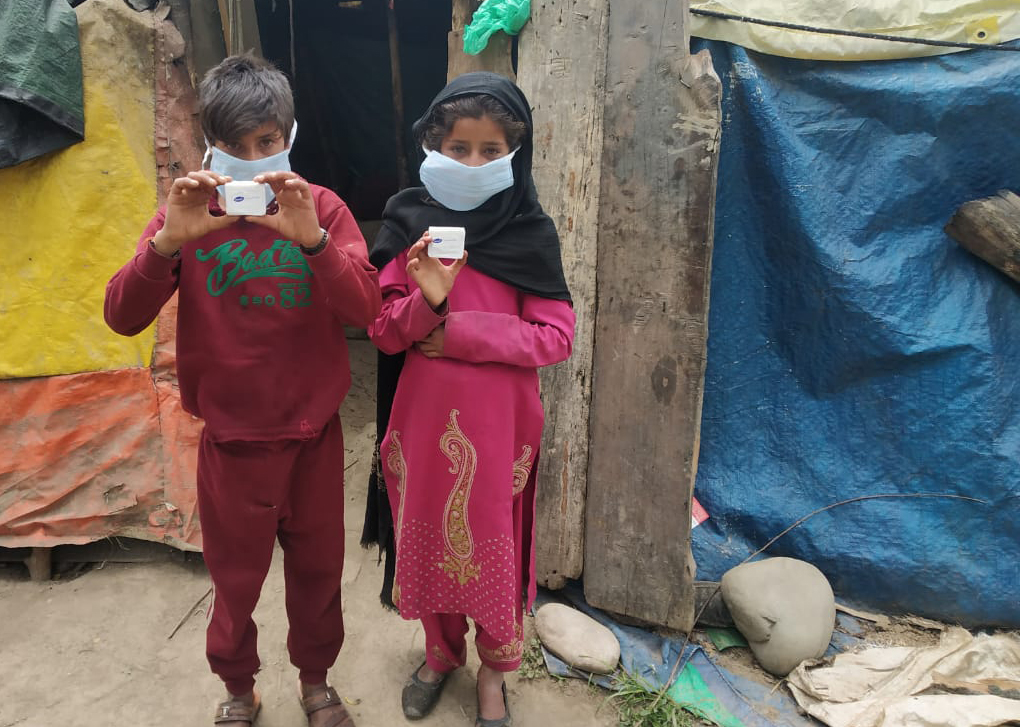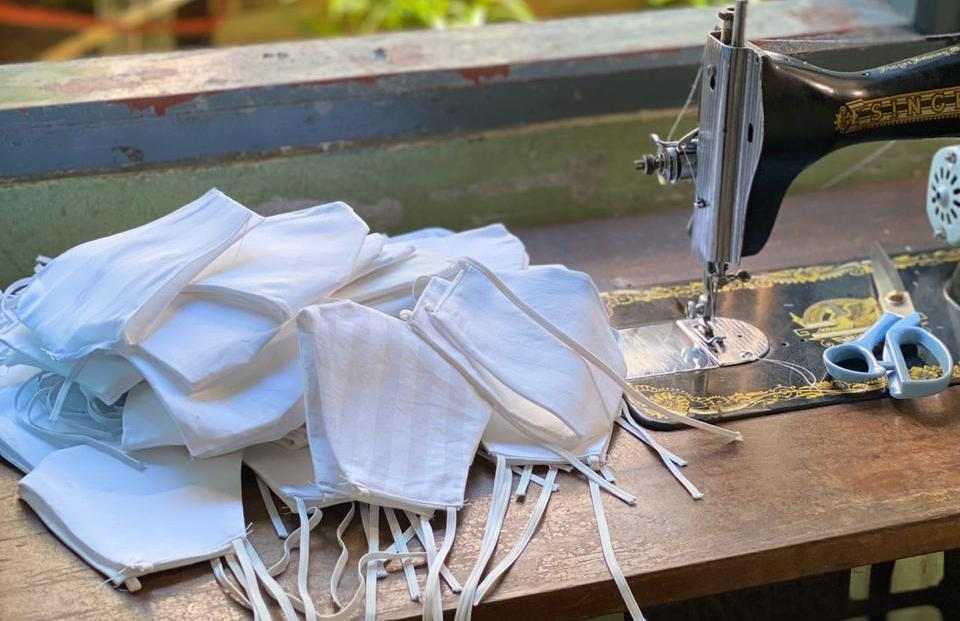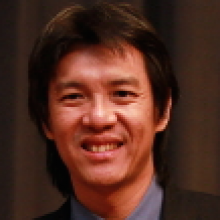2020 has been a tough year for all of us, no doubt…But at the same time, 2020 has been a year full of new paradigms, that I never thought would happen. For example, I would have never imagined that I could walk into a bank wearing a ‘face mask’ and ask for money from the lady over the counter. I would have never imagined that more alcohol could touch my hands than my lips. A year where the exhortation “Stay Negative” means something better than “Be Positive”…
But in all seriousness, COVID-19 hit a lot of our communities very hard. Many were in lockdowns in cities across the world. Not all lockdowns were created equal. The ones living in crowded slums, in trash dumps and landfill communes and poor villages suffered more than the average city-dweller in high rise apartments or landed houses.
For example, over the years we have helped to support two trash dump communities in Indonesia through our Creating Shared Value (CSV) programs such as Soap For Hope and Linens For Life. One community is in Batam, the other is in Bali. These two islands rely a great deal on tourism, and with tourists, rubbish and trash are aplenty. The people in these communities work as trash pickers and salvage reusable or recyclable rubbish to be sold. During the pandemic, the tourism sector crashed and with it, the amount of trash was also significantly reduced. With lesser amount of trash to be salvaged, the income of the trash pickers went down as well.
The situation got so bad that people were having to make decisions between buying food or buying a face mask, and families having to survive on one meal per person on every alternate days.
When countries closed their borders, tourism was hit badly. Hotels had to be closed temporarily or operated with very low occupancy rates. We have run the Soap For Hope program with hotels since 2013, and we depend on the hotels to supply us with the used guest soaps. With zero or very low occupancy rates, there were very little soaps to be recycled. Fortunately, most Soap For Hope communities had a stockpile of soaps collected from the previous year, so we had enough soaps to be up-cycled and distributed to many communities. Soaps were distributed to communities from Iguazu in Argentina, to Petra in Jordan, slums across India and Sri Lanka and villages in South East Asia. Even in Singapore, we distributed Soap For Hope soaps to the migrant communities which were under stringent quarantine during the time when COVID-19 had spread through the dormitories they were staying in.
However, although used guest soaps were short in supply, most hotels have a lot condemned linens in stock. After discussing with many doctors who are with our current partner NGOs such as Doctors For You in India, CCIHP in Vietnam and HealthServ in Singapore, we were convinced that reusable/washable linen face masks are better than nothing. This was backed up by many studies, including a study which tested over 30 materials to make DIY masks, and bedsheets is one of the top 5 materials that is effective to protect against COVID-19.
With that in mind, our ground teams in a few countries were activated to explore how we could implement the Linens For Life Face Mask (L4LFM) program.
One of the strengths of Diversey's CSV programs is that we have very long associations with our partner NGOs that were involved in taking care of people where were at the bottom of the pyramid - those living in poor villages, slums, rubbish dumps and cemeteries and the homeless. These NGOs continued to look after these demographics during COVID-19. They were given special permission by the authorities to move around during a lockdown to provide food or medical care to these people. We were able to provide soaps and face masks to the poor communities through our partner NGOs.
We approached our customer hotels and in quick succession, several hotel chains, namely Accor, Hilton, Kempinski, Melia, Oyo, Radisson Hotel Group and Shangri La signed up. Altogether, from March to Nov 2020, over 60 hotels in 30 cities across 12 countries have provided 26.7 tonnes of linens (white bed sheets, pillow cases and duvet covers) which could make over 1 million face masks. To date, we have made over 850,000 face masks, and on track to reach the 1 million milestone by end of 2020. In the process, these 26.7 tonnes of up-cycled linens also have environmental benefits – this represented a water footprint reduction of 126 million liters of water (4750 liters of water is needed to make 1kg of new linen) and CO2 footprint reduction of 320 kg (1 kg of new linen has a 12 kg of CO2 footprint).

Children of the Aeta tribe in northern Philippines with Linens For Life face masks from our partner NGO, Fresh Hope For Families
Consequently, since the start of Covid-19 and lockdowns in various countries, we have distributed about 150,000 soap bars and 850,000 face masks to many slums, rubbish dumps and villages from Argentina to India and Indonesia. Soaps from Soap For Hope Program had provided hygiene and sanitation, while the Linens For Life Face Masks provided the respiratory protection for the needy.

Children in India slums receiving Soap For Hope soaps and Linens For Life face masks from our partner NGO, Doctors For You
Our efforts also had been noticed; in November 2020, Diversey was awarded the Asia Corporate Excellence and Sustainability (ACES) Most Caring Company in Asia of the Year by the MORS Group. In December 2020, I was honored to be chosen, representing all our Diversey Teams, in the Eco Business A List 2020: Sustainability Leadership In The Times of Covid-19.
There is a cliché saying - "There are 3 types of people in the world":
- Those who make things happen
- Those who watch things happen
- And those who wondered what the heck happened
When faced with a situation where many people are suffering, it is easy to say "well, there's nothing I can do". This is NOT entirely true. Everyone can make a difference. It is just a matter of choice. The needs out there are simply too great for my teams and I to say "well, there's nothing we can do". But we’ve always chosen to make a difference. We connected our customer hotels to our partner NGOs who are helping communities in need. We worked together with passion to keep people healthy and safe.
Last but not least… in life, we have choices. We can choose to make things happen, or we can watch things happen or we can wonder what the heck happened. And I am very proud of our teams, who always collectively accept challenges and choose to make things happen to protect and care for people…always.
Because we are Diversey.



